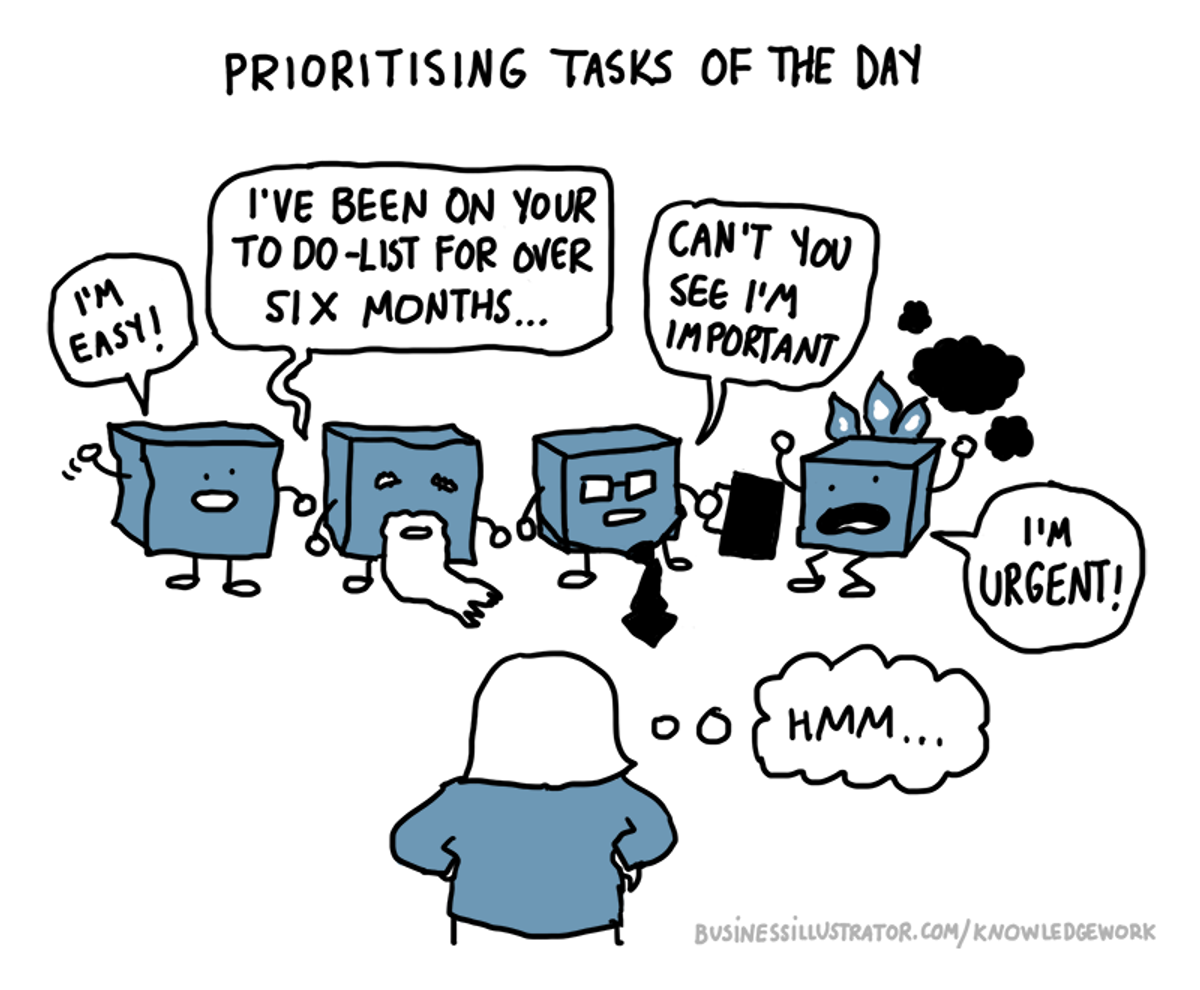From the Director of Pedagogy and Innovation

Prioritising Time to Prioritise
It is hard to believe that next Wednesday we are going to be in November. This time of the year moves very quickly with busy school weeks, the lead up to Christmas, school holiday preparation, etc. and it is very easy to drown under the mental load of it all.
Prioritising effectively is a fundamental skill in both personal and professional life, and it comes with a host of challenges and benefits. While it may seem straightforward, the act of determining what tasks or goals to focus on can be a complex and sometimes daunting endeavour. However, the rewards of mastering this skill are substantial, making it well worth the effort. Many of us know this, but the discipline and insight to master it is another challenge altogether.
One of the foremost challenges of prioritising well is the constant influx of demands on our time and attention. In today's fast-paced world, we are bombarded with a never-ending stream of emails, messages, and tasks, making it easy to become overwhelmed.
This inundation of information can lead to a sense of chaos and disorganization, hindering our ability to make informed decisions about what truly matters. There are few things more antagonising than replying to emails while even more emails land in your inbox.
Additionally, the fear of missing out, or FOMO, often complicates the prioritisation process. It's natural to want to say "yes" to every opportunity or request, but doing so can lead to over-commitment and a dilution of our efforts. Balancing the desire to be involved in everything with the need to focus on what is most important can be a perplexing juggling act. This is particularly so at this time of year as celebrations and opportunities are move available than ever.
As people with creative minds and preferences, our personal biases and emotional attachments can cloud our judgment when it comes to setting priorities. We might be inclined to prioritise tasks that we enjoy or are comfortable with, even if they are not the most critical. Alternatively, we may procrastinate on challenging but essential tasks, leading to unproductive behaviour. The book Eat That Frog, by Brian Tracy, speaks to this challenge well. By doing the thing we want to do least, first, we are able to spend the remaining time without the cloud of that task above us.
On the other hand, when we successfully navigate these challenges, the benefits of prioritising well become evident. Time management and productivity soar, as we allocate our energy to the most significant tasks. We can meet deadlines with ease, achieve our goals, and maintain a sense of control over our lives. We also have greater bandwidth to deal with unexpected things that come into our lives.
Effective prioritisation also helps reduce stress and overwhelm. By focusing on a limited number of key objectives, we can devote more time and attention to each, resulting in better outcomes and a sense of accomplishment. This, in turn, promotes a healthier work-life balance, which is crucial for our overall well-being.
Additionally, prioritising well enhances decision-making skills. When we approach each task with a clear sense of its importance, we can make informed choices about where to direct our efforts. This clarity reduces the likelihood of impulsive or emotional decision-making, ensuring that our actions are in line with our long-term objectives. Decision fatigue is a real risk at this time of the year – what gifts to buy for particular family members, where can we book some time away over January, etc are all in the mix.
For our students it is splitting time and focus across the major projects, study, assessments etc. that are all competing for time. We need to help them with the skills to block their time, prioritise spaces for the draining, as well as the exciting work and then walk with them as the negotiate the ongoing challenges of managing this.
I hope you get a chance to mark some things out this week and prioritise now so the upcoming few months are calm and controlled!
Mr Chris Sanders
Director of Pedagogy and Innovation
